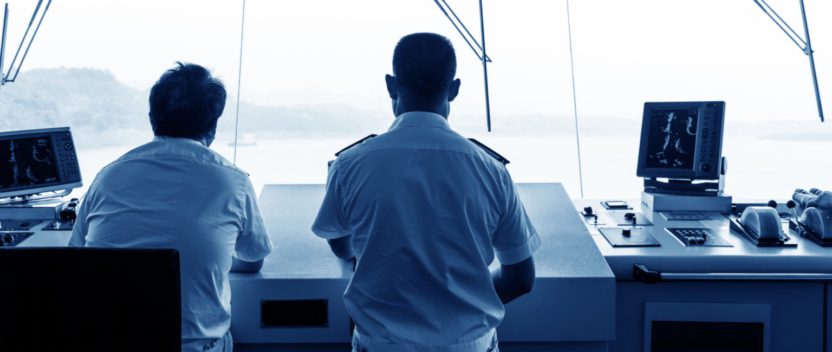Of booms and busts, regulations and ruminations
February was a month of misery for dry bulk owners with the Baltic Dry Index hitting its record low and showing little intention of recovering soon. Tankers on the other hand made hay in a continuing bounce fuelled by cheaper crude. Elsewhere the song was rather more familiar – regulation is coming and not all of the technology available makes compliance easier.
Tanker orders grow
With spot VLCC earnings averaging above $50,000 a day in Q4 2014 and $70,000 a day by the second week in February, Gibson Research noted a rise in newbuildings orders with little surprise.
With 12 orders placed in January, the orderbook reached 101 units or 16% of the existing fleet. The increase comes on the back of a dearth of orders in December despite earnings hitting a 6.5 year high, Gibson said. Even higher earnings in January triggered interest with 12 VLCCs ordered in a single month, compared with 38 for the whole of 2013.
The broker notes however that if the era of low oil prices persists, it brings both upside and downside risks. Looking on the bright side, a persistent low oil price will discourage more high cost shale and oil sand projects, potentially supporting demand for Middle East seaborne exports.
Get ready for BWM
The UK P&I Club described the entry into force of the Ballast Water Management Convention as ‘imminent’ now that 44 states representing 32.86% out of the required 35% of the world’s merchant fleet tonnage have ratified.
The balance is expected to be obtained shortly and the convention will enter into force 12 months thereafter. Rather than further delay entry into force of a convention adopted 10 years ago, the IMO has proposed delaying the implementation of sanctions for a trial period of between two to three years.
But the P&I Club pointed out that ships will still need to comply with the Convention on completion of their first International Oil Pollution Prevention Certificate renewal survey after entry into force and estimates that some 57,000 ships will need to comply. Assuming a maximum of 40 ships can be retrofitted a day, it will take nearly four years for this to be completed.
The Club warned that the process from selection to installation can take between six months and a year and said a number of shipowners have yet to take even the first steps towards complying.
Multi-band communications
As maritime satellite communications solutions move beyond L-Band to VSAT and HTS frequencies, Harris CapRock has announced the launch of a new service, One, featuring what it claims is the world’s first tri-band antenna capable of connecting to C-band, Ku-band and Ka-band services.
The new service will combine satellite signals with compatibility with shore-based wireless and 3G/4G connectivity options with MEO and GEO satellite VSAT, to offer the user the strongest connection possible in their particular location.
Changeover between the various systems will be controlled by an integrated box on board, designed to monitor the connectivity options and automatically route to the best available based on speed, latency, location and cost.
Watermist under the spotlight
The Marshall Islands flag has warned that an increasing number of foreign-flagged ships are being detained in US ports because of issues with their water mist fire-fighting systems.
The flag joins insurance provider Gard in warning that water mist fire-fighting systems secured either by closed supply valves or by placing the system in a manual mode of operation were considered out of compliance with SOLAS.
When a water mist system requiring an automatic operation capability is placed in manual mode, the sensors and alarms are not engaged and the system’s quick response capability is disabled.
The chances of a fire spreading increase when the protected space is unmanned and the overall effectiveness of the water mist system could be reduced, particularly in terms of time needed to extinguish the fire, Gard said.
To protect against a fire risk, engine and boiler rooms and similar high risk machinery spaces must be protected by a fixed fire-extinguishing system. CO2 remains the most commonly used engine room fire-extinguishing agent, despite its toxicity to crew.
Water mist systems offer some clear advantages over gaseous agents, as water is non-toxic, environment friendly, readily available and provides effective cooling of equipment and structures, even in spaces with electrical equipment.
Hot spot in the ditch
MTN Communications has struck an agreement with P&O Ferries to deliver the ‘the first Wi-Fi hot spot on the English Channel’. The service is live on ferries serving the P&O Ferries Dover-Calais route, which are connected to the MTN Terrestrial Broadband Network in addition to having satellite connectivity.
Each P&O Ferries vessel now has a broadband antenna tracking and stabilisation system which works across the entire 35 kilometre English Channel, allowing the system to lock on to terrestrial signals and provide communications.
While ferries have traditionally relied on satellites for communications, P&O Ferries says it wanted a more reliable, robust solution to cope with projected increases in demand from passengers who want to stay online whether travelling for business or pleasure.
No better with ECDIS?
P&I provider The Swedish Club has reported that navigational claims such as collisions, contacts and groundings have remained at consistent levels despite advances in technology and safety systems.
In its latest Navigational Claims publication the club looked at claims made for hull and machinery damage between 2004 and 2013. It found that claims figures over this period were steady, even though technology on board ships has evolved significantly and safety regulations have become more stringent.
The Swedish Club attributes this to a variety of causes, including failure to correctly follow procedures, poor communication between officers and crew and as well as poor communication between vessels and a general lack of situational awareness.
Being able to identify the reasons for navigational claims is invaluable for masters and shipowners, not to mention their insurers, the Swedish Club said. Most of the claims the club received can be prevented by simply ensuring that all crew follow proper procedures and consult with each other before making major decisions.
More microwave creations
The Microwave Vision Group (MVG) has announced the launch of S@iLink, a 4G broadband solution the company says will provide speeds up to 100 megabits per second for vessels in coastal and port areas.
MVG claims S@iLink will have a range of approximately 20 nautical miles and when outside areas of 4G coverage, the system will connect using the lower speed UMTS and GSM networks.
The system is the result of two years of research involving partners including Thales, Alcatel-Lucent, Déti, and Telecom Bretagne. MVG says the system will be priced at under €1,000 and available from May.
Short timeline for sulphur cap says ICS
The International Chamber of Shipping has warned that the IMO’s global 0.5% sulphur cap is likely to be implemented in 2020, rather than 2025.
The decision is officially dependent on the outcome of a low sulphur fuel availability study to be undertaken in 2018.
But ICS chairman Masamichi Morooka, says ICS has concluded that the global cap is very likely to be implemented in 2020, almost regardless of the effect that any lack of availability of compliant fuel may have on the cost of moving world trade by sea.
Postponement until 2025 is still a possibility but he said neither the shipping nor oil refining industries should assume that this will happen simply because they are unprepared. ICS members have agreed that they will continue to work with the refiners to help ensure that they will be ready, if necessary, to supply sufficient quantities of compliant fuel by 2020.
MARPOL Annex VI allows for the possibility that implementation of the global sulphur cap can be deferred until 2025. Despite repeated requests by ICS, IMO member states have so far refused to bring forward the conduct of the fuel availability study. If supply problems are identified at the end of 2018 this will be far too late for governments to take action.
…but bunkers better
Bunker fuel is showing an improvement in quality according to the International Bunker Industry Association which says it has campaigned to get players from across the marine fuels supply chain to raise their game.
Addressing the annual IBIA dinner in London, during IP week, chairman Jens Maul Jorgensen said that the early results for 2015 showed that there had been a marked improvement in bunker fuel quality with 8% of samples found to be off-spec, compared with 10% in 2014.
The test for on/off specification fuel was based on a single test result with respect to the fuel grade purchased. Tests in 2014 also showed a significant change in purchasing patterns with a 15% increase in the number of distillate fuels being tested as new lower sulphur maximums come into effect in the Baltic and North Sea ECAs.
No Trojan horses
Accountant and shipping adviser Moore Stephens says it is ‘too soon to say’ whether the change of government in Greece will have a damaging effect on the country’s shipping industry.
London-based partner and shipping specialist Michael Kotsapas, who has been advising Greek families for over 15 years says any change of government is likely to have implications for a national industry and this is particularly true of Greece, where shipping is a significant contributor to the country’s overall GDP and a major source of employment.
Before the election Kotsapas says, Syriza called for a new agreement which would involve the shipping community making a greater contribution to the national economy than it already does.
“It remains to be seen whether that will be the case. Shipping is a key industry in Greece and it would be surprising and disappointing if the new government’s policy, when announced, did not reflect that. In the meantime, the shipping community will be watching developments with keen interest.”
Ends


